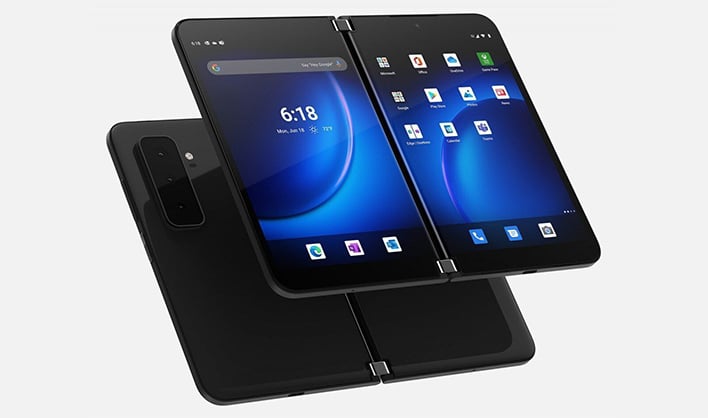
Microsoft enjoys desktop dominance, but it just can’t get mobile right. The company’s most recent smartphone project is dead with the final update for the Surface Duo 2. The dual-screen phone has gotten the October 2024 security patch just in time for the end of support. There will be no further Android updates for this phone, which has seen just one major OS update.
The Surface Duo left the support window last year, and now it’s the Duo 2’s turn. It launched with Android 11, eventually receiving Android 12L with a few enhancements for large-screen devices. However, it has missed out on the further improvements in Android 13 and 14. Microsoft has kept up with security updates, but this phone is clearly not a priority. Support ends on October 21, three years after launch. So, the October patch will be the last, leaving the Duo 2 to languish on Android 12.
The original Surface Duo launched in 2020, and the Duo 2 arrived just one year later. Both phones had two short, wide OLED panels attached to a central hinge. It had similar heft to foldable smartphones, but trying to use apps on both screens was awkward, and there was no external display. The form factor was odd, but not necessarily bad—except for the wedge-shaped camera module on the second-gen unit that kept the phone from folding flat. That was definitely bad.
Microsoft asked a lot for these quirky phones, with the first model retailing for $1,399. Microsoft eventually had to put it on steep discount to move units, but it didn’t learn its lesson. The Surface Duo 2 was even more expensive at $1,499.

The Surface fiasco was Microsoft’s third or fourth (depending on how you count) swing at having a presence in mobile. The Windows maker could never get it right, but that wasn’t for lack of trying. It bought (and ruined) Nokia, tried to put Windows 10 on a phone, and then went after the ultra-premium smartphone space with the Duo and Duo 2. Last year, Microsoft pruned its hardware projects, leading to the departure of Surface and Windows boss Panos Panay.
Today, Microsoft enjoys a massively inflated value on the strength of its generative AI portfolio. So, its failures in mobile probably don’t sting that much.